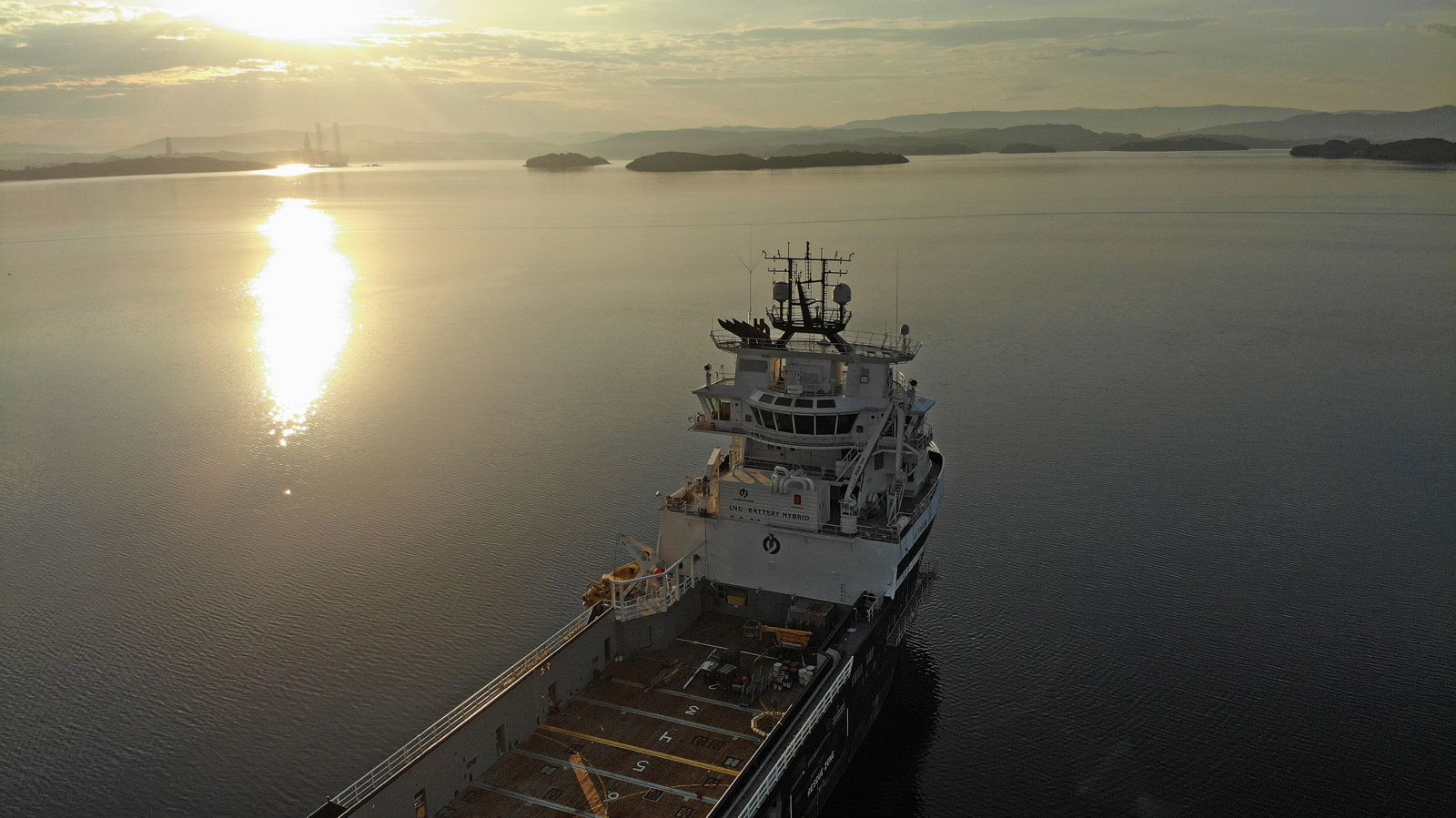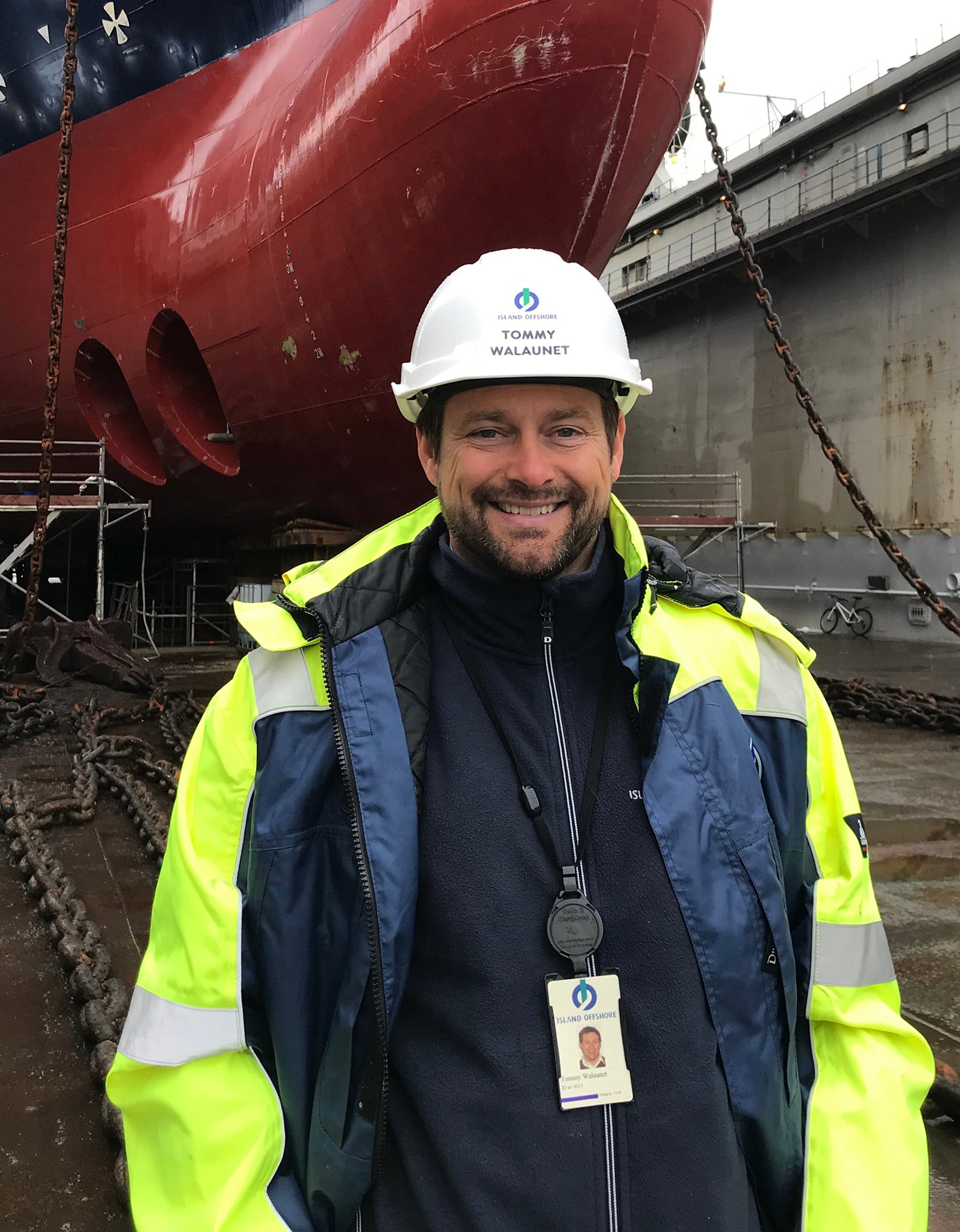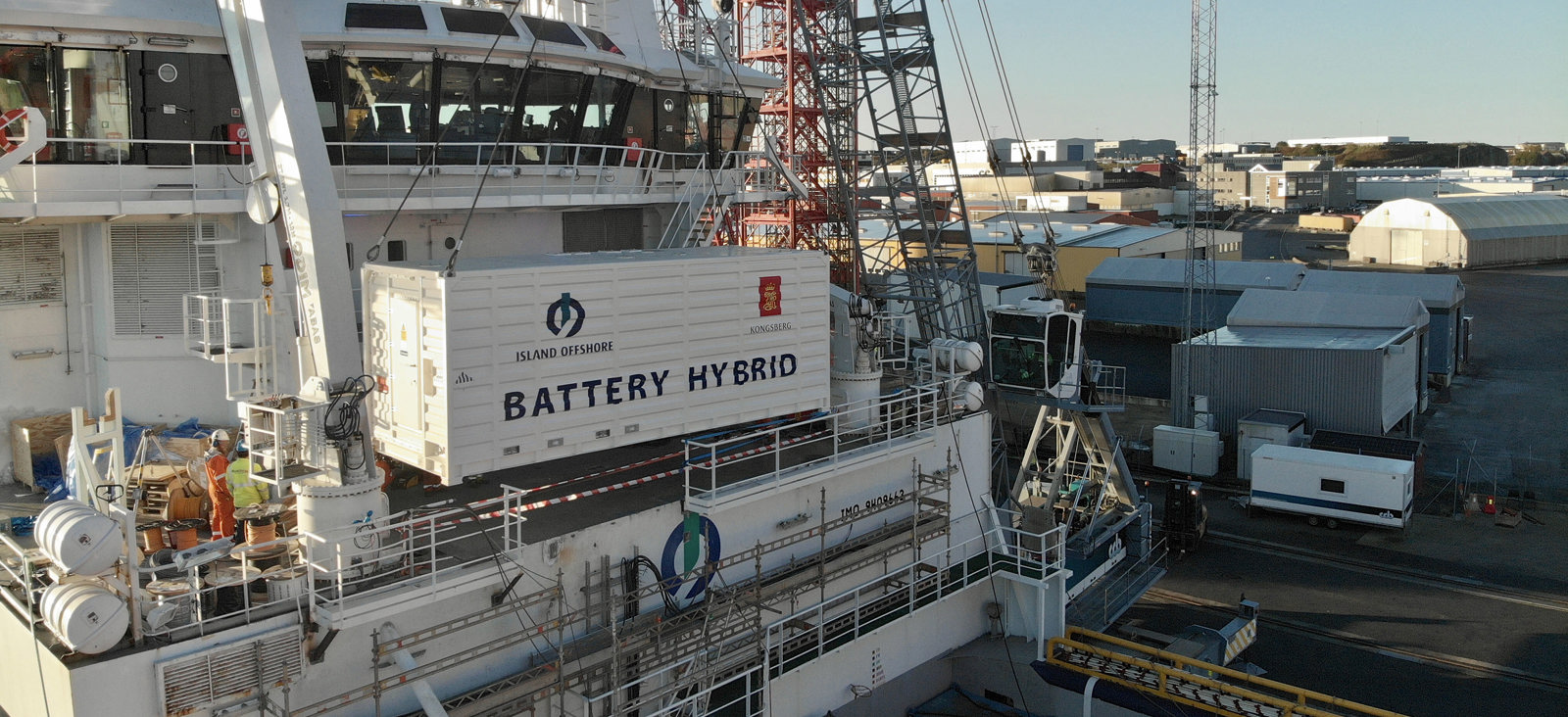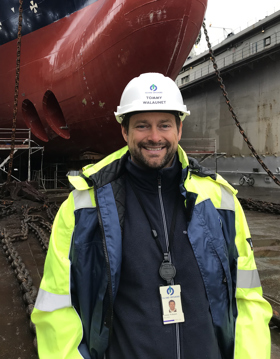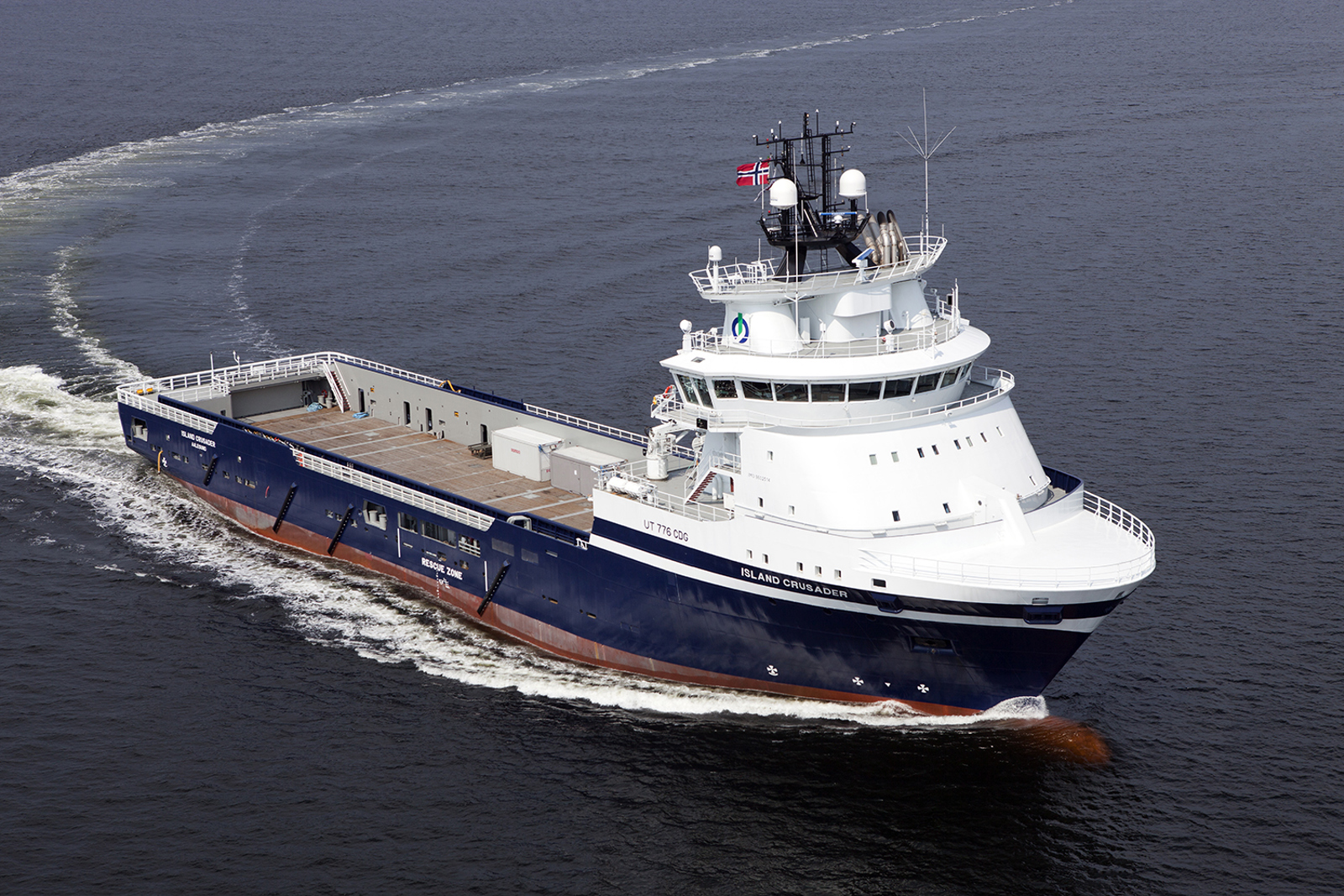Initial measurements based on Island Crusader operations over the last few months have been encouraging, says Tommy. And that’s important, because apart from fuel efficiency, energy efficiency and sustainable operations are becoming more and more important to Island Offshore’s customers.
“There’s willingness to pay more for sustainable and fuel-efficient solutions,” he explains. “That’s partly why we converted to LNG in the first place, even though the perception and importance of sustainability was not that high on the market’s agenda in 2012.
AN EFFICIENT FUTURE
“It’s now developing in that direction for sure. And that’s where another advantage comes in — combining batteries and alternative fuels on an energy platform is an efficient way to bridge the path to new fuels.
“But if we’re going to continue making significant improvements in terms of fuel efficiency and emission reduction, it’s really key that the authorities in Norway and other countries support this retro-fit kind of strategy.
“The fact that all the players in the industry, especially in the OSV business, are having a difficult time financially makes it difficult to undertake this type of investment without that strong support, backed by creative vendor relationships like the one we have with KONGSBERG.
“That long-standing relationship is, of course, also very important. KONGSBERG know us well, our technical people work well together and they are very strong in being able to provide turnkey solutions.
“They’re not dependent on us providing a significant part of the project, or on other subcontractors doing so — it’s a one-stop-shop and that’s very important for us. We don’t have significant project capacity, so we need to find solutions that allow us to deliver significant improvements within our resource constraints. KONGSBERG help us to achieve that, and, as a result, to achieve organisational goals.”
Read more about our hybrid solutions here.
